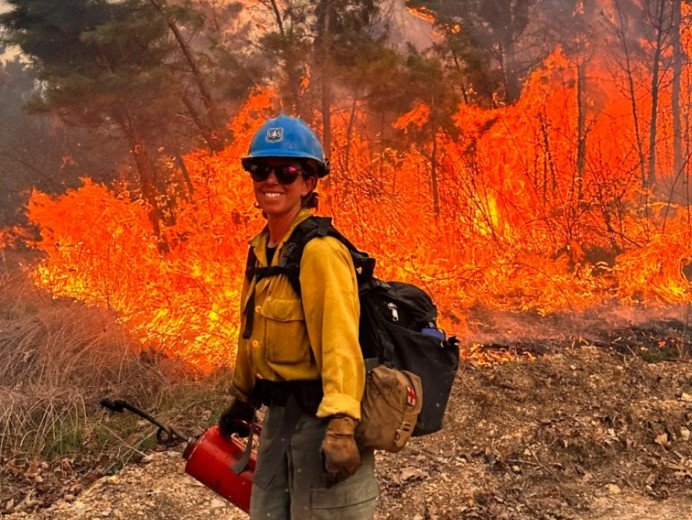As the frequency and intensity of wildfires escalate across the United States, the demand for wildland firefighters has never been more urgent. Yet, the federal government faces a dire challenge: a significant decline in the number of these essential first responders. With a staggering attrition rate of 45% among permanent employees in recent years, the situation has reached a critical point.
The Frontline of Fire: A Workforce in Peril
Wildland firefighters are the unsung heroes who confront the flames head-on, safeguarding lives, homes, and natural habitats. Their work is grueling, often involving long hours in hazardous conditions, with the added burden of extended periods away from family. Despite the risks, these firefighters are driven by a sense of duty and the adrenaline-fueled moments that come with battling nature’s fury.

However, the physical and emotional toll of the job, coupled with relatively low compensation, has led to a high turnover rate. Efforts to improve conditions, such as the wage increase from $13 to $15 per hour initiated by the Biden administration, have been a step in the right direction, but more comprehensive measures are needed to retain and recruit talent.
The Smokejumpers’ Plight: A Case Study
The elite smokejumpers, who parachute into remote areas to combat early-stage wildfires, exemplify the challenges faced by wildland firefighters. Their rigorous training and the demanding nature of their assignments make them a unique asset in the fight against wildfires. Yet, stories like that of Ben Elkind, a smokejumper who suffered a severe injury during a training exercise, highlight the personal risks and sacrifices these individuals make.
Elkind’s experience sheds light on the need for better support systems for injured firefighters and their families. It also raises questions about the sustainability of relying heavily on a workforce that is increasingly stretched thin and undervalued.
A Call to Action: Securing the Future
The decline in wildland firefighters poses a threat not only to the immediate response to wildfires but also to the long-term management and prevention strategies crucial to mitigating these disasters. It is a call to action for the federal government to invest in this vital workforce, ensuring they have the resources, support, and recognition they deserve.
Initiatives to bolster the ranks of wildland firefighters must include competitive salaries, comprehensive healthcare, and support for those injured on the job. Additionally, creating a culture that values and respects the sacrifices these individuals make is essential for a sustainable and effective wildfire response team.

Comments